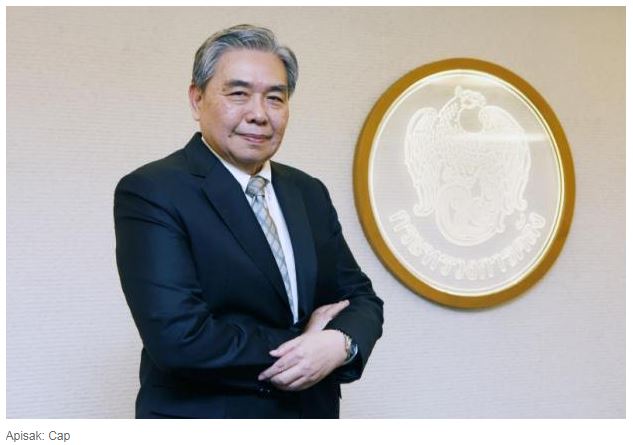Thailand: Apisak securing draft law for business ease
Even as the general election nears, Prime Minister Prayut Chan-o-cha is pushing the Finance Ministry to complete a new draft Secured Transactions Act to facilitate business operations and raise the country’s ranking in the World Bank’s Ease of Doing Business list.
Enforcement of secured transactions is one area where Thailand earned a low score in the Ease of Doing Business survey, said Finance Minister Apisak Tantivorawong. The World Bank has taken part in drafting the new bill on secured transactions, but the private sector opposes the bill, saying the current law is good enough, he said.
“If it is good enough, why did Thailand score only three out of 10,” Mr Apisak told the Bangkok Post in an exclusive interview.
The new bill will integrate the existing laws related to secured transactions into a single law that is more efficient for lenders, with a security interest in collateral in case the borrower defaults, he said.
The existing law is overseen by several state agencies, which makes implementation difficult, said Mr Apisak.
For example, the Interior Ministry’s Land Department is responsible for the law pertaining to real estate security transactions, while the Commerce Ministry is in charge of the law that applies to machinery.
The World Bank urged Thailand earlier to continue easing existing laws and regulations that hamper small and medium-sized enterprises (SMEs) from easy access to funding, and the Secured Transactions Act and its limited coverage were highlighted as areas of concern.
Thailand’s Secured Transactions Act came into force on July 4, 2016, giving SMEs and startups easier access to credit by letting them use inventory, raw materials and intellectual property as collateral. The law helps unlock the financial limitations on entrepreneurs in securing loans to finance their businesses and create new business.
Under the law, the limitation on the type of assets that can be given as collateral is eliminated. A business, a right of claim, or movable property of the security provider can be used as collateral in operating a business such as machinery, inventory or raw materials, real property, intellectual property or any other assets as specified in the ministerial regulation.
Thailand climbed to 26th in the World Bank’s Ease of Doing Business ranking for this year among 190 economies, up from 48th in 2017 and 49th in 2016.
Mr Apisak said he has paid attention to the new bill on secured transactions as doing business in Thailand will be more convenient and the legislation should also be attractive for investment.
The private sector disagreed with the bill as it is concerned collateral pledged by their debtors could cause problems, he said.
Both Gen Prayut and Deputy Prime Minister Somkid Jatusripitak support the bill, saying it will be a boon to the business sector, said Mr Apisak.
Asked about which bills he wants to push ahead of the general election, Mr Apisak said he prefers not to pinpoint laws as others will be overlooked.
The Finance Ministry is working on speeding about 80 bills through the legislative system, including those involving imposing taxes on digital platform operators and the land and buildings tax, aiming for lawmakers to pass them before next year’s general election.
If these bills fail to win approval from the National Legislative Assembly under this government, they will be bounced back and must seek approval from the next government, which will likely result in them being shelved.
Source: https://www.bangkokpost.com/business/news/1563574/apisak-securing-draft-law-for-business-ease


 Thailand
Thailand




